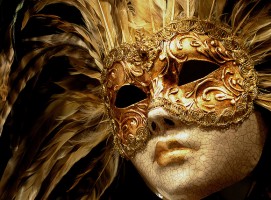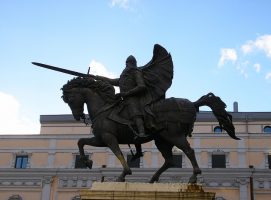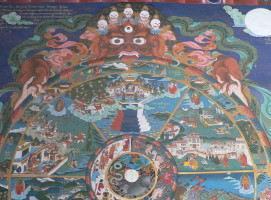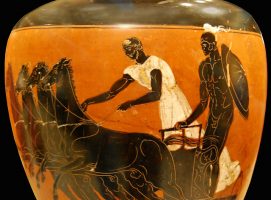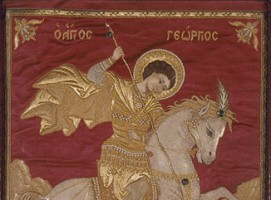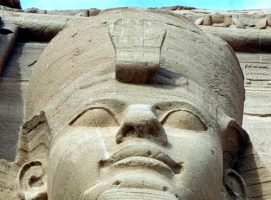Showing 263 articles
Personality Changes
Author: Delia Steinberg GuzmánOctober 4, 2014
In order to deal with some of the problems that afflict modern societies, a lot of research has been conducted into the changes that the human personality can undergo. Clearly, this is something that concerns us all. However, attempting to define the personality is a difficult and complex task and, for the same reason, it’s [...]Against Separation, We Need Trust
Author: Delia Steinberg GuzmánOctober 4, 2014
The word “unify” comes from the Latin unus and facere, “to make one”, that is, to bring together various different parts that are coherent with another, and combine them in such a way that we can achieve a harmonious and homogeneous unity. It is an act of coming closer together, of connection, which, if it [...]Eclecticism, Searching for Truth Beyond Fanaticism
Author: Jorge Angel LivragaOctober 3, 2014
“Eclecticism” is the name given to the philosophical position which, without objecting to anything a priori, analyzes and considers things, compares and relates them in search of the best of them all, with a view to finally selecting the one that is most qualified as worthy of acceptance. But this clear and concise definition, squarely [...]Best Career In The World: To be An Idealist
Author: Yaron BarzilaySeptember 7, 2014
Which might be the best career in the world? Trying to answer this might suggest ideas such as “do nothing, earn a lot”. Maybe it involves working in some exotic destination, making money while having fun, etc. But when talking about a ‘career’, rather than a ‘job’, we are referring to a process of self-improvement [...]A Beautiful Mind
Author: AnonymousAugust 28, 2014
Release year: 2001 Duration: 135 minutes Movie category: Biography, Drama Director: Ron Howard Writers: Akiva Goldsman, Sylvia Nasar (book) Production Companies: Universal Pictures DreamWorks SKG Imagine Entertainment Cast: Russell Crowe, Ed Harris, Jennifer Connelly, Christopher Plummer, Paul Bettany, Adam Goldberg, Josh Lucas, Anthony Rapp, Jason Gray-Stanford, Judd Hirsch, Austin Pendleton, [...]Gather Around the Fire
Author: Jorge Angel LivragaAugust 27, 2014
In the first of the twelve doorways that await us in this year 1983, it is good – or perhaps simply inevitable – to sharpen the sight and hearing of the Soul in order to detect what the future holds in store for us, based on the interaction between our own characteristics and the environment, [...]Practical Implications of the Theory of Reincarnation
Author: Alex WarrenAugust 27, 2014
Why reincarnation makes a difference in the way we live our lives. Every man’s soul has by the law of his birth been a spectator of eternal truth, or it would never have passed into this our mortal frame, yet still it is no easy matter for all to be reminded of their past by [...]The Myth of Unending Progress
Author: Jorge Angel LivragaAugust 26, 2014
The term “progress” derives from the Latin “progressus” which means, quite simply, the action of going forward. It is a mere illusion of the senses, intoxicated with hope, the supposition that every forward movement is synonymous with improvement, happiness and joy. The arithmetic progression of 1, 2, 3, 4, etc. does not mean that 2 [...]The Symbolism of the Charioteer
Author: M.A. Carrillo de Albornoz & M.A. FernándezAugust 22, 2014
The charioteer is the symbol of calmness, self-control and mastery of the mind and psyche, so ever changing and unstable. He reduces the manifold, reaching us from the outside world, to the inner unity of will. The horses of the chariot are our instincts and passions. In general there are four of them, corresponding to [...]Forty Years Fighting Racism and Intolerance
Author: John GilbertAugust 8, 2014
A century with no solidarity One of the worst plagues that the twentieth century has had to bear is racial discrimination. It has not only plunged over half of the human population into oblivion and poverty, but during the periods of greatest alienation, it has also led to the systematic extinction of certain minorities. When [...]Ramses II
Author: Alex WarrenAugust 8, 2014
If, today, at the end of the twentieth century, one were to ask the average person to name an Egyptian pharaoh, the reply would probably be, “Tutankhamen.” This, of course, is due to the highly unusual discovery by Howard Carter in 1922 of the child-king’s small but almost intact tomb. Tutankhamen died at age 17. [...]
